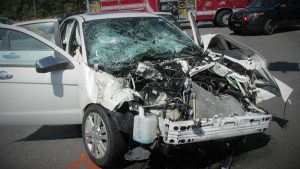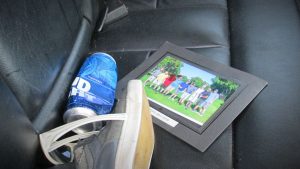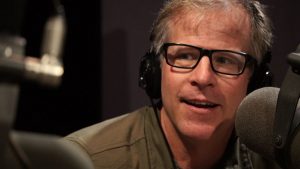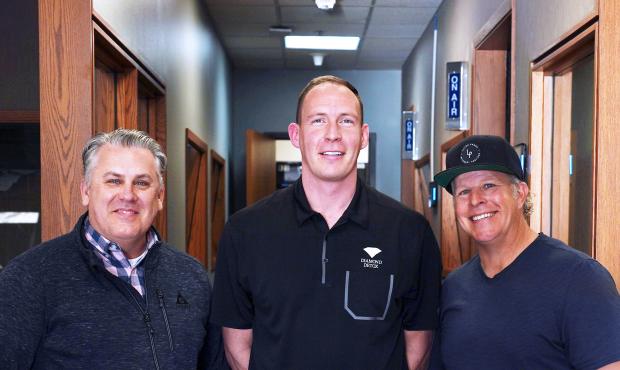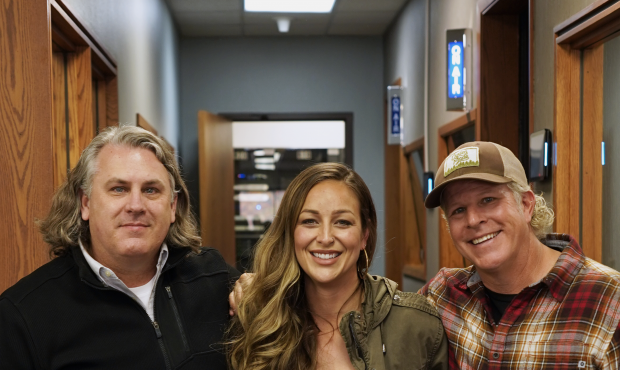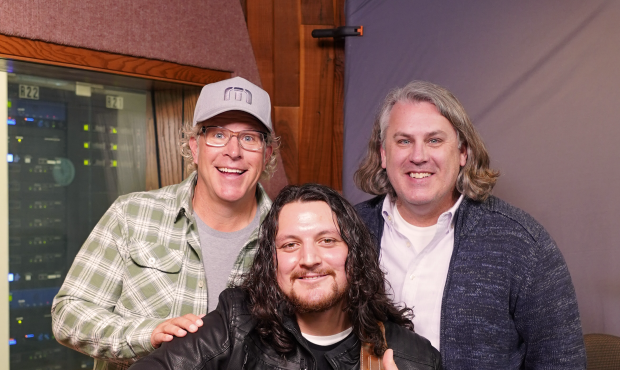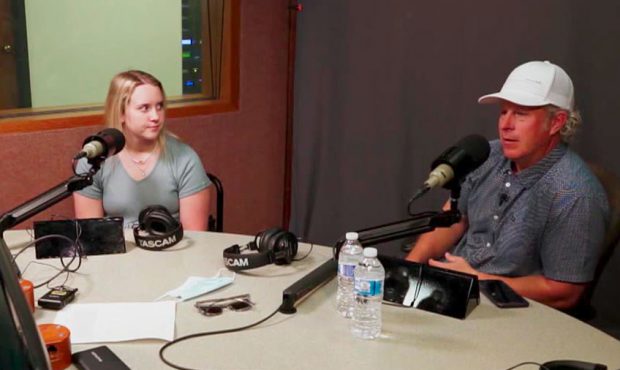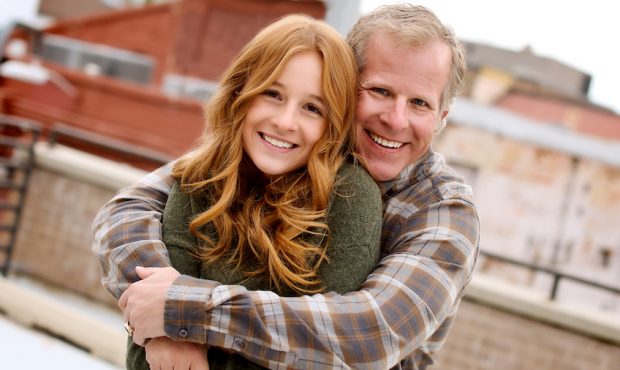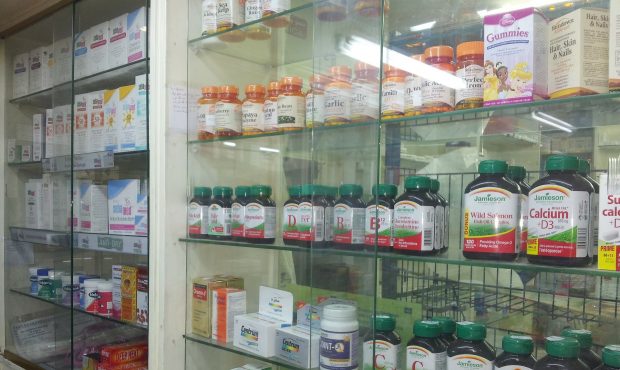Casey Scott Reflects On Serious Mistakes, Looks To Future Of Addiction Recovery
Mar 19, 2019, 10:18 PM | Updated: Apr 8, 2019, 4:14 pm
SALT LAKE CITY, Utah – For years, Casey Scott was the face of morning television in Utah. That ended on September 2, 2018, when he was arrested for driving under the influence of alcohol.
His choice to get behind the wheel that day caused a serious crash with injuries at the intersection of U.S. 89 and 200 North in Kaysville.
It was the second DUI arrest for Scott.
According to the probable cause affidavit filed in Davis County Justice Court, Scott’s vehicle “left his lane and swiped a vehicle causing him to lose control, running a red light and colliding with another vehicle in the intersection.”
Inside that vehicle was a family of four, including two young children.
They survived the crash, but it left physical and emotional injuries.
“I just want them to know I’m sorry,” said Scott.
On March 18, one of the victims from that vehicle posted a message about the crash to her Facebook page, which reads in part:
“For the past 196 days, we have suffered. I think back to that day and see the pictures of the wreckage. I look at my young kids and I’m terrified. Terrified for what could have happened. No, I don’t live in the what could have, but when I say he very well could have killed us, I’m not joking. We were lucky that day, but no thanks to him. A family day out turned into a nightmare.”
“I was selfish, I was stupid,” said Scott. “What I could have done was ended somebody’s life, what I could have done is change the fabric of their family forever.”
Facing the Consequences
In November, 44-year-old Scott pleaded guilty to the DUI.
Scott was ordered to spend 180 in jail but 145 of that was suspended. He was also sentenced to one year of probation.
Charges of having an open container of alcohol in his truck and the lane infraction were dismissed as part of a plea agreement. The judge also gave Scott credit for the actions he took in the hours after he bailed himself out of jail.
“I sat on the couch and I cried, and I didn’t know what to do,” recalled Scott. “But what I did know was that what I was doing wasn’t helping so I called UNI (The University Neuropsychiatric Institute) which is a detox center and I said, ‘Hey I need help, I need to come in.’ So I went there at 5:00 a.m. and sat in front of the door until they opened and could get me in.”
After seven days in detox, Scott checked himself into Pinnacle Recovery in Holladay, where he spent the next 45 days examining the ugly side of what he says he now realizes is an addiction to alcohol.
“The second day there I called my mom and said, ‘Mom, I think I’m in the wrong place.’ I said there are people in here for meth and pain pills and I’m in here for Bud Light,” said Scott. “But I realized my addiction is the same as their addiction. I justified it as my drug dealer is on every corner and every supermarket so mine isn’t really that bad, but when you get down to the simplest form, it’s the same as anybody’s addiction, it’s giving something else some power over you.”
Scott says alcohol has always played a factor in his life. It was how he celebrated the good, and a way he numbed the bad. Eventually it took over his life.
“My ex-wife would say, ‘why couldn’t you quit for me, why couldn’t you quit for the kids?’” said Scott. “I tried. I had those conversations with myself. There were days I would say ‘I’m not going to drink, I’m not going to drink,’ and then before I knew it, there is a beer in my hand.”
Scott says his time at Pinnacle Recovery gave him a moment to be honest with himself and his kids, and to acknowledge that he made the choices that put others in danger. He says rehab was also eye opening to the fact that addiction doesn’t discriminate.
“I was in there with retired police officers, mothers up on the hill, athletes, kids from back east, and to go, that’s the face of addiction? It’s not what we see on TV at night, it’s not what we imagine, the real face of addiction is everyone around us,” he said.
When he left rehab, Scott says he felt prepared both mentally and physically to tackle sober living. But what he faced next were the consequences of his actions. He’d hurt people in the crash, he lost his TV job at KSL, his driver’s license, and his family was still living through the public scrutiny of his arrest.
“I’m a month out of rehab and I’m sitting on the couch and I’ve had a bad day and my girlfriend is there and my kids are there, and everybody is just piling it on to me and I said ‘Hey, lighten up! Look at all the stuff I’ve been through!’” Scott said.
“And without missing a beat, my 14-year-old girl goes, ‘Really dad? You think you’re the only one that went through this?’ And that hit me so hard because I’m like, she’s 14, she’s got a cell phone, she’s got friends, she’s going to school and her dad’s face is on Facebook, Instagram, so no it wasn’t just me,” he said.
“Who did I hurt? I hurt everybody,” continued Scott. “I hurt everybody who believed in me, everybody who thought I was somebody. And that’s the hardest part about it.”
Project Recovery
Unemployed and facing a new reality, Scott found a job delivering furniture. He recalls the sometimes-awkward moments when people would recognize him as the Casey Scott from TV.
“You’d walk in and they would say ‘Aren’t you?’ and I would say, ‘Yeah, where do you want this bed?’ And then they’d say, ‘What are you doing?’ and I would say, ‘whatever it takes!’”
A few months out of rehab, Scott approached KSL with an idea for a podcast that would focus on addiction and recovery.
“I wanted to do it with KSL because throughout the whole process they were really good to me, they looked after me. They didn’t just shut the door and walk away, they cared about me,” said Scott.
The podcast, Project Recovery, confronts addiction in all its forms, not just Scott’s journey. He hopes his experience provides a safe place for others to talk openly about their struggles and successes.
“Whether you know it or not, everybody is addicted to something — whether it’s food, cell phone, pornography, gambling, likes on Facebook, and it all boils down to the same thing — a pleasure-response system,” he said.
With the help of licensed psychologist and co-host Dr. Matt Woolley, Scott says the goal of Project Recovery is to provide hope to others facing addiction. He says he knows not everyone will support him, but that he still has to try.
“I know I’ve done some bad things, and I know there are people out there who won’t forgive me,” said Scott. “All I can do is wake up, be the best dad I can, best person I can, and hopefully you’ll come around, and if you don’t, I can’t let it ruin me, I can’t focus my energy on that. I’ve got too many things depending on me.”
Project Recovery is available for free on all major podcast streaming services, and on the KSL apps:
- Online: https://ksltv.com/category/project-recovery-with-casey-scott/
- Apple: https://itunes.apple.com/us/podcast/project-recovery/id1456285385?mt=2
- Facebook: @projectrecoverypodcast https://www.facebook.com/projectrecoverypodcast
- Instagram: @projectrecoverypodcast https://www.instagram.com/projectrecoverypodcast/
Email the show:
- casey@projectrecoverypodcast.com
- DrMatt@projectrecoverypodcast.com
- stories@projectrecoverypodcast.com

